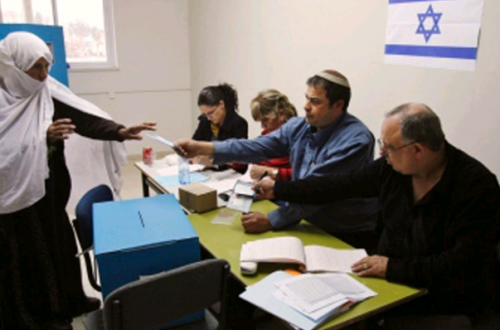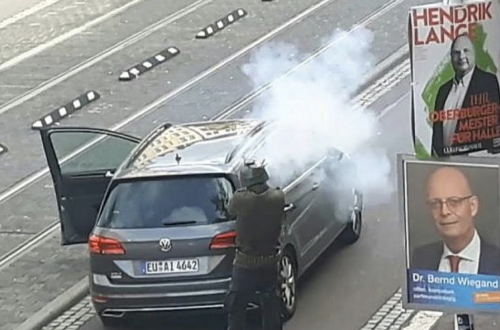At a conference held in London yesterday, Sharia Law, Apostasy and Secularism, speaker after speaker explained exactly why we needed to defend our freedoms from religious extremists. Hearing many passionate and often very personal testimonies to the dangers of theocracy and intolerance, I found myself reflecting rather bitterly on this recent article by Howard Littler, President of Goldsmiths SU, a riposte to Spiked’ s campaign against creeping censoriousness on UK campuses.
In privileged white man land, freedom of speech is always under attack
Littler’s argument is inconsistent. He invokes the union’s commitment to a woman’s right to choose as key to its policy on abortion. (Pro-life activism is subject to restrictions on campus.) This issue, it seems, has been decided, so the conversation is now over. But a little later he says:
But isn’t going against the grain, challenging power and social norms not the very epitome of what a commitment to free speech is supposed to be about?
The answer seems to depend on whose grain you are going against.
He concludes:
It is clear how Spiked and their counterparts want to envision Students’ Unions: as never ending debating chambers, welcoming with open arms the bigots and fascists we campaign against and rejecting a collectivism that is uncomfortable with their idea of the status quo. Their version of free speech – that it is a neutral, black-and-white concept – is politically charged and discourages challenging authority. Not only is this intensely boring, but it’s dangerous, and should be rejected.
I think my idea of a Student Union is rather more like this one. Better a never ending debating chamber than the ‘safe space’ of an eternal echo chamber.
The article’s title is inherently annoying, and doesn’t even reflect its content; only passing reference is made to race:
It is obvious that Spiked has a very particular utopia. It refers to a privileged ‘white man’s land’ where fascists are welcome on campus to intimidate non-white students and where anti-abortion activists are free to hand out pictures of foetuses and propaganda calling those who have had abortions baby-killers and making women generally feel uncomfortable in what is supposed to be their space of study.
Many pro-life campaigners are women. And not all fascists are white. You can’t brush aside extremists who don’t fit the white far-right stereotype without also brushing aside the experiences of their non-white opponents. These include many of those speaking at yesterday’s conference – Nahla Mahmoud who has faced death threats for apostasy, Pragna Patel who has campaigned against the way Sharia councils discriminate against women, Aliyah Saleem whose experiences at a strict Islamic boarding school have inspired her to campaign for secular education for all, and many many more. While Student Unions have the luxury to curtail their own freedoms voluntarily, secularists and apostates had to meet in a secret location yesterday in order to avoid the serious threats to some of those involved in last October’s conference, and ensure that their voices could still be heard.
UPDATE
Someone asked if I would be adding more detail about the conference, so here are a few further thoughts. I apologise for not having taken good notes, so these are just a few points which stuck in my mind (and apologies for any inaccuracies). Pragna Patel of Southall Black Sisters spoke of the dangers of a parallel legal system, particularly when women were in danger of being coerced into consulting Sharia councils – and when legal aid was being cut. Maryam Namazie reminded us of the countless people who had fought (and died) for secular freedoms. ‘Freedom is always the freedom of dissenters.’ We were reminded more than once of the way in which the Rushdie affair opened people’s eyes to these issues – and of the continuing betrayal of secular values by so many on the left.
Aliyah Saleem told us of her own experiences at boarding school, about the limited curriculum and strict rules – she was expelled for possessing a camera. She focused on the lack of musical education in such schools and on the insistence that the hijab be worn at all times. In at least one case CCTV cameras have been used to ensure the girls wear their hijab even in their own boarding house – while walking from their bedroom to the bathroom, for example. Chris Moos gave us an update on how/whether universities are ensuring that gender segregation is not imposed on any of its events. In most cases they only have inadequate safeguards in place. Rumana Hashem is from Bangladesh, and described her dismay at the way in which British multiculturalism impacted on people’s willingness to pursue issues such as domestic violence – too ‘sensitive’ an issue when the victim was (supposedly) from a different culture. Yasmin Rehman gave a presentation with the tongue in cheek title ‘Sometimes it’s hard to be a Muslim’ – one point she made was that the Sun’s Union Jack hijab cover reinforced the idea that the headscarf was the norm for Muslim women. She insisted that Muslims (like her) should speak out on extremism as to remain silent was to collude with Islamists.
After lunch Gita Sahgal spoke passionately about the need to defend ‘comic liberty’. Then came a panel discussion on apostasy. Amal Farah spoke of her upbringing in Somalia where any non-Muslim was described as a gal – a way of dehumanising and mystifying those of different backgrounds and beliefs. (I think she said that gals are rumoured to have monstrous appetites because they possess seven stomachs). Imad Iddine Habib is the founder of the Council of ex-Muslims of Moroco, and he told us that ‘shaking the faith of a Muslim’ can land you with a three year jail sentence in his home country. Magdulien Abaida insisted on the importance of criticising Islam – Abaida fled Libya after being abducted and beaten up by an Islamist militia group. Both Nahla Mahmoud (from Sudan) and Ramin Forghani (from Iran) have faced traumatic experiences as apostates from Islam, but one small thing that struck me in both their talks was the way in which they described how they were cautioned or chided by Muslim shopkeepers in the UK when they bought products deemed to be haram.


